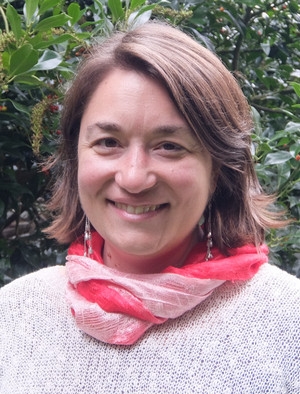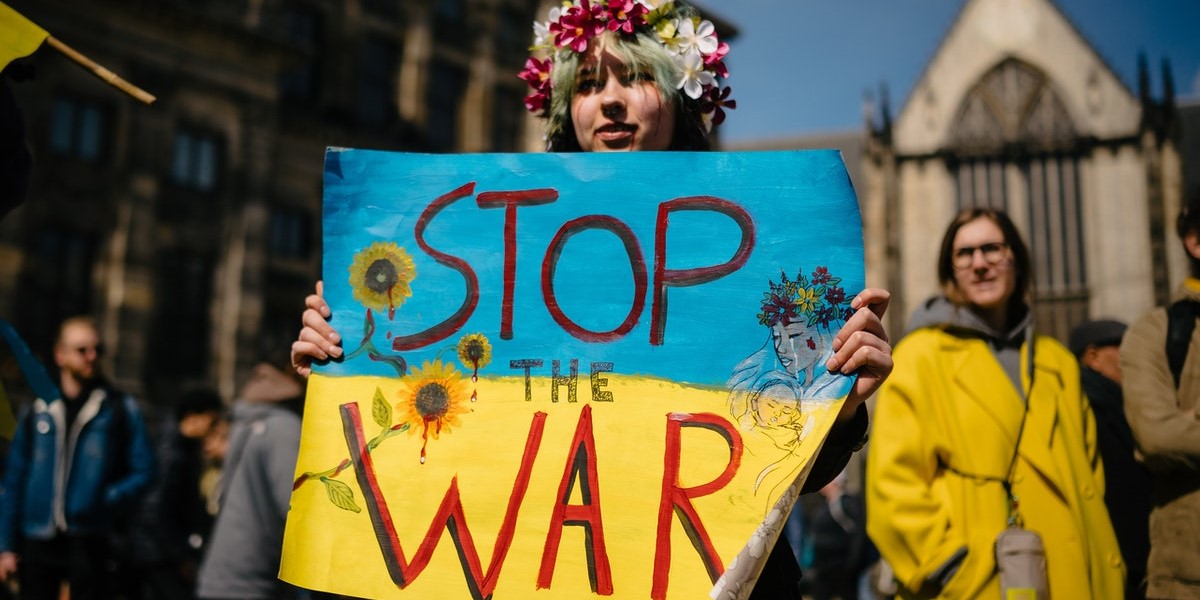Questioning ourselves on war, peace, justice, and solidarity as we prepare for Easter
By Josianne Gauthier, CIDSE Secretary General
“No Justice, No Peace!”. This powerful chant usually accompanies the anti-racism mobilisations, where crowds of passionate rights activists link the issues of justice and dignity of every person to that of peace. Most would agree that there can be no peace without truth, without justice, the respect for every person’s basic rights.
More than a month has passed since Russia invaded Ukraine and war in Europe became a reality again. Some of its effects are immediate; others will reverberate long after the fighting has stopped, long after agreements have been made to stop the bloodshed – which we hope and pray will happen sooner rather than later.
But even before this conflict exploded, were we truly living in peace? Arguably, only some of us were able to do so. Others were fighting for their basic rights to be respected. They were lacking access to sufficient resources, energy, comfort, safety, health, and opportunities to thrive. Even when this conflict ends, we’ll still be breaching our planets’ boundaries. So, is it really ‘peacetime’ that we’ll be going back to?
We’ve become accustomed to a system in which the comfort and safety of some comes with the insecurity, the suffering, the exploitation, and injustice inflicted on others.
Worryingly, war accustoms us to violence. Feeling powerless in front of the suffering, we start to think that maybe more violence might put an end to it. In the face of the horror, we are seeing many leaders and well-intended individuals drawn into a discourse that normalizes war and violence.
But we also need to think about what comes after war, what peace for all really means. Over the past month we have focused our attention on one corner of the world, while other conflicts rage on, while injustice and violence follow their course in far too many regions, while the climate crisis closes in on us. We struggle to let all of these different realities find their place in our minds, in our hearts, in our policies. But these are not unrelated issues. They all stem from the same roots of injustice, and we must make greater efforts to answer this call to justice and solidarity in the world in a coherent and integrated way.
Is Peace so impossible? True peace, rooted in justice, will be unattainable until we are able to achieve peaceful coexistence with the planet and share its riches fairly. To achieve peace, we need to escape from the cycle of competition, conflict, violence, and aggression. Ultimately, war is just another expression of our tendency to take rather than to nourish, to oppress and dominate rather than to share and cooperate.
We know we are capable of more. As ever in human history, in the moments of great darkness, we have also seen great leaps of solidarity and beauty, and strength. In just a few weeks, we have seen Europe open its borders and welcome the Ukrainians fleeing war. We have seen red tape and administrative burdens lifted to make this possible. We have seen people open their homes to strangers, share what they have, send help, and even assist in the humanitarian response. We have seen a global community, for the most part, stand in solidarity with Ukraine and oppose the invasion and behavior of the Russian leadership. We have also been moved by the courage and dignity of the Ukrainian population.
Can the solidarity we have seen towards Ukrainians help us to open our hearts to understand that all deserve such solidarity? We are all vulnerable to the forces driving this crisis and the next ones: we should be humble and allow ourselves to act in solidarity with all who flee hardship and suffering. I hope that all of this goodness we see, all of this solidarity, and openness can open our eyes to all of the injustices around us, to the underlying violence we are enacting on the planet and on each other. As we are still learning through the pandemic, none of us are safe until all of us are safe. Justice cannot exist in only one place and there can be no peace without justice, as those marching against racism and discrimination have told us. We need the courage to radically fight for peace for all, not just for some.
Easter is about the light after a period of darkness and privation – reflection. Perhaps we can hope to emerge from this dark period, more aware and alert to what truly matters, and be inspired by a collective and shared love of life and its fragility. Perhaps another path is being opened to us through this terrible crisis, one of solidarity, justice, and peace. Will we have the courage to take it, and the humility to keep walking on this path together?

Cover photo by Michael Mücke from Pexels

